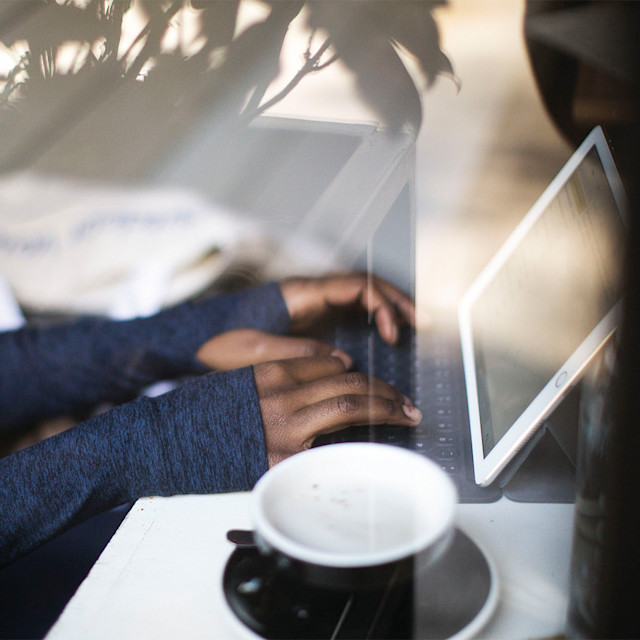Detaching from work at night and reattaching in the morning boosts happiness and focus.
Detaching from work once you leave the office hopefully feels like second nature. But if you work a hybrid or fully remote job, actually signing off might feel like a whole different beast. Whether your phone chimes with Slack notifications at 9pm, or you just can’t help but reply to emails before bed, setting boundaries is key for your wellness. “If you don’t create that boundary between work and out of office times, the stress and pressure from work can continue to build at home rather than giving you space to decompress,” says Dr. Sabrina Romanoff, a New York City-based clinical psychologist who specializes in work-related stress. “Not only would you miss out on the resources for relaxation at home, but the stressors from the work day will be compounded.”
Reorganize to physically mark the distinction between work and home
This could look like changing your environment, like putting away your laptop and other work gear (especially helpful for folks who work in their bedrooms). You could also turn off harsh lights and instead use accent lighting, or add in some aromatherapy through a relaxing oil diffuser or candles. This reorganization can also be extended to you, Dr. Romanoff says, by taking a shower or changing into different clothing—yes, even if you wear loungewear while working.
Implement wellness rituals at the end of your workday
Dr. Romanoff suggests marking the end of your day by making yourself a cup of tea or taking a walk around the block or even heading to a group fitness class to decompress and unwind. “Changing yourself physiologically can also help recalibrate and process stress,” she says.
On the flip side, “The need for thoughtful transitions goes both ways,” says says Laura Vanderkam, a Philadelphia-based productivity expert whose TED Talk on optimizing your free time has more than 13 million views. And she’s right—according to science, reattaching to work in the morning is just as important as detaching in the evening.
One significant 2019 study found that those who did so performed better, felt more focused, and had greater job satisfaction. “It’s important to plug back into work to help maintain the dual identities that exist between your professional and personal self,” says Romanoff. Reattaching involves taking time each morning to remind yourself of your intentions.
Start small
Dr. Romanoff encourages small steps, like making your bed, doing a skin-care routine, and eating a healthy breakfast to jumpstart your morning. “All of these tasks create a sense of accomplishment and generate momentum to continue to make additional achievements throughout the day,” she says.
Make your first hour after waking a phone-free time
Guilty of grabbing your phone the second you wake up and checking your notifications? Romanoff says this displaces you into “work mode” and creates “an externally imposed to-do list.” Whether you know it or not, when you grab your phone, you’re looking to distract yourself or create a false sense of productivity. “The irony is that the habit of checking your phone in the morning can become a reactionary method to procrastinate instead of actively engaging in higher priority tasks,” she says.
Think about your to-do list
Decide which task you’ll tackle first—or figure out what you’ll say during a morning presentation. “You can also visualize having accomplished these things at the end of the day,” says Vanderkam. Working in the office? Dedicate a few minutes to these thoughts before you get to work—while getting dressed, drinking coffee, or commuting—not once you’re there. That way, you’re mentally prepared as soon as you arrive.
“We all have multiple parts of ourselves and it’s important to exercise the shifts between those parts to maintain fulfillment in different aspects in our lives,” says Romanoff. In this era of unprecedented rates of burnout and work stress, it’s important to remember that your job isn't your life, so finding healthy ways to detach and reattach to your career helps give you a sense of purpose and self.
